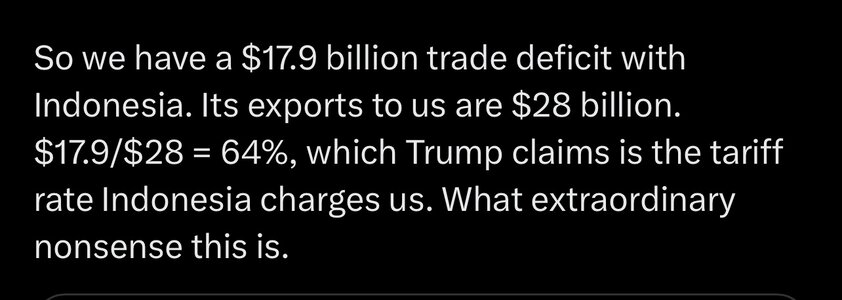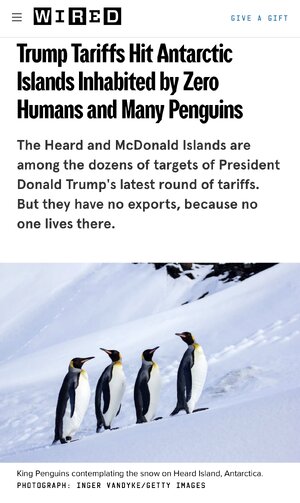European Commission president hopes to move from confrontation to negotiation after Trump attack on ‘pathetic’ EU

www.theguardian.com
European Commission president
Ursula von der Leyen warned of “dire consequences” for millions of people, as she said tariffs would “hurt consumers around the world.”
She said there was “no clear path through the complexity and chaos that is being created as all US trading partners are hit,” but she insisted the EU’s unity “is our strength” and the bloc would be prepared to respond with calibrated countermeasures.
Outgoing German economy minister
Robert Habeck stressed the need for a united EU response, saying the bloc should leverage the fact it has the largest single market in the world.
“Europe’s strength is our strength,” he said, adding he hoped for “a negotiated solution.”
Italian prime minister
Giorgia Meloni called the introduction of US tariffs “wrong” as she vowed to “do everything we can to work towards an agreement with the United States, with the aim of avoiding a trade war that would inevitably weaken the West in favor of other global players.”
“In any case, as always, we will act in the interest of Italy and its economy, also by discussing with other European partners,” she added.
Swedish prime minister
Ulf Kristersson said he “deeply regreted” the US decision, saying “we don’t want growing trade barriers” as he lauded the benefits of free trade.
But he said the government was ready to respond and work with the EU to “take every opportunity to reverse these developments.”
“We want to find our way back to the path of trade and cooperation together with the US,” he stressed.
Irish prime minister
Micheál Martin said that tariffs “benefit no one,” as he warned they are “bad for the world economy, they hurt people [and] businesses.”
“My priority, and that of the government, is to protect Irish jobs and the Irish economy, and we will work with our companies … to navigate the period ahead,” he said.
He said he would work with EU partners to “get on a negotiation with the US to limit the damage.”
Martin also highlighted “the added value and the strength that Ireland has given to so many US companies” based there.
Polish prime minister
Donald Tusk posted
a brief update on social media, saying: “Friendship means partnership. Partnership means really and truly reciprocal tariffs. Adequate decisions are needed.”
Finnish prime minister
Petteri Orpo said the tariff decisions were “concerning,” as he warned “there are no winners in a trade war.”
“Businesses, consumers, and economic growth suffer. The EU is ready to respond and negotiate. We support this effort. Finland is prepared as part of the Union,” he said.









